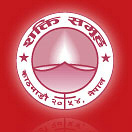Shakti Samuha
Research Training for Shakti Samuha
"Now we know what to ask researchers/media interviewers and foreign researchers coming and taping our stories"
As part of the research team’s collaboration with Shakti Samuha a year long modular program of research training is being provided for nine members of the Executive Committee. This program aims to build institutional capacity through research skills training. The program, which was drawn up in discussions between Dr. Meena Poudel and Shakti Samuha’s Executive Committee, was agreed in April 2010 in Kathmandu and comprises the following six modules:
- Research design (Qualitative and quantitative)
- Literature and policy searches
- Research methods (Qualitative and quantitative, data collection, sampling, ethics, media analysis related to trafficking)
- Data storage, entry and analysis,
- Researchers identity and positionality (including action research and activist/academics)
- Data presentation and dissemination including the media
An Associate Professor of Women’s Studies of Padma Kanya Collage, Tribhuvan University, Kathmandu has been recruited to deliver the training program. The first module took place in May 2010 and subsequent modules were scheduled through to 2012.
“We want to continue” (June 2010)
A post training reflection session recently held with participants noted the following:
- The concept of research training for survivors is a unique approach to building the capacity of people who lives are being studied.
- The first training session gave an idea of what research is about and why it is important in policies in relation to trafficked women (pro-survivor policies, our advocacy campaign).
- The nature of training is difficult, more difficult than training in program management but it is stimulating/encouraging and also enjoyable because it is new to us.
- This training will help Shakti Samuha to challenge researcher(s) who often tape the stories of trafficked women without considering the social and political implications that occur after interviews, for example, stigma, social rejection due to a lack of confidentiality and publishing stories in the media without prior consent. Participants said “now we know what to ask researchers/media interviewers and foreign researchers coming and taping our stories”




